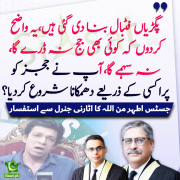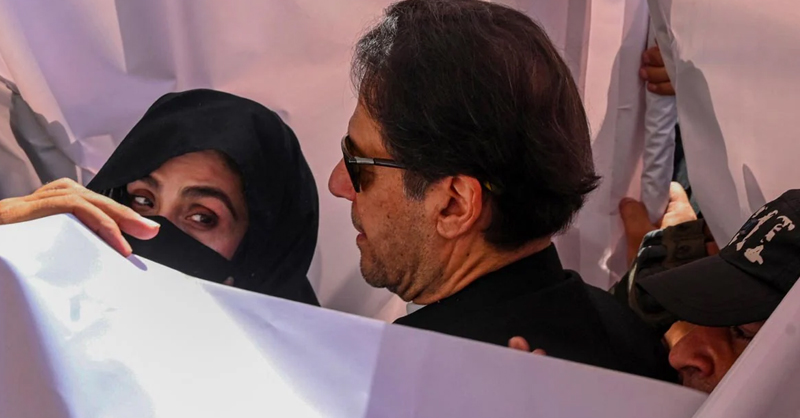A salam o Alykum

Sheikh Ahmed Farooqi - Sirhindi Almaroof Mujaddid Alif Sani
(1564–1624)

Sheikh Ahmed Farooqi - Sirhindi Almaroof Mujaddid Alif Sani
(1564–1624)
He is among very few scholras of India who are equally respected by all school of thoughts . Sheikh Ahmed Farooqi has a great stature in the eyes of Ahl-e-Hadith , Deobandi and Barelvi ulama . He played a vital role in revival of Islam during "Shehensha-e-Akbar Azam" when king wanted to introduce his new religion "Deen-e-Ilahi" , an amalgam of Hinduism and Islam . But Sheikh Ahmed resisted at that time and with all literary force he battled with tyrant of that time Akbar . Later King Jahangeer accepted the dawah of Sheikh Ahmed and abandoned Deen-e-Ilahi in India and paved the way to reconstruct islamic ideology in India.
Interesting thing is that Ahl-e-Hadith and Deobandi scholars treat him as a great advocate of Shria where as Barelvi scholars regard him as a great Sufi.
We definitely need such islamic scholars which are equally respected by all maslaks so that they can fuel the movement for unity of Ummah .
Excerpt from Wikipedia :
Sirhindi believed that "what is outside the path shown by the prophet (Sharia) is forbidden." He wrote, "Cow-sacrifice in India is the noblest of Islamic practices. The kafirs may probably agree to pay jiziya but they shall never concede to cow-sacrifice." [SUP][5][/SUP] However, Yohanan Friedmann has argued that there is no evidence that Sirhindi or his disciples spread "anti-Hindu sentiments wherever they went." [SUP][6]
[/SUP]
On the other hand, Yohanan Friedmann questions how committed Sirhindi was to sharia, commenting: "it is noteworthy that while Sirhindi never wearies of describing the minutest details of Sufi experience, his exhortations to comply with the shariah remain general to an extreme." [SUP][8][/SUP] Friedmann also claims "Sirhindi was primarily a Sufi interested first and foremost in questions of mysticism."[SUP][9][/SUP]
Sirhindi writes:
Interesting thing is that Ahl-e-Hadith and Deobandi scholars treat him as a great advocate of Shria where as Barelvi scholars regard him as a great Sufi.
We definitely need such islamic scholars which are equally respected by all maslaks so that they can fuel the movement for unity of Ummah .
Excerpt from Wikipedia :
Sirhindi's world view
Movement for Revival of Islam
Shaykh Ahmad Sirhindi's preaching and revival was a reaction to the anti-islamic policies of Mughal emperor Akbar. Akbar's 'anti-islamic' policies were, in fact, the modern policy of religious tolerance. Sirhindi was notably intolerant and not an opponent of the use of force in deciding spiritual matters. He denounced Akbar's policy of sull-i kul (mixing all religions into one), and Akbar's reign as one where "the sun of guidance was hidden behind the veil of error." Movement for Revival of Islam
Sirhindi believed that "what is outside the path shown by the prophet (Sharia) is forbidden." He wrote, "Cow-sacrifice in India is the noblest of Islamic practices. The kafirs may probably agree to pay jiziya but they shall never concede to cow-sacrifice." [SUP][5][/SUP] However, Yohanan Friedmann has argued that there is no evidence that Sirhindi or his disciples spread "anti-Hindu sentiments wherever they went." [SUP][6]
[/SUP]
Importance of Sharia v. Sufism
According to Simon Digby, "modern hagiographical literature emphasizes [Sirhindi's] reiterated profession of strict Islamic orthodoxy, his exaltation of the sharia and exhortations towards its observance."[SUP][7][/SUP]
On the other hand, Yohanan Friedmann questions how committed Sirhindi was to sharia, commenting: "it is noteworthy that while Sirhindi never wearies of describing the minutest details of Sufi experience, his exhortations to comply with the shariah remain general to an extreme." [SUP][8][/SUP] Friedmann also claims "Sirhindi was primarily a Sufi interested first and foremost in questions of mysticism."[SUP][9][/SUP]
Oneness of being (wahdat al-wujūd)
Sirhindi strongly opposed the mystical doctrine known as wahdat al-wujūd ('unity of being') or tawhīd-i wujūdi, a concept which emphasizes that in reality all things exist within God. Nonetheless, he did not hold a particularly unfavorable view of the sufi mystic and theoretician Muhyī 'l-Dīn ibn Arabī, who is often presented as the originator and most complete propounder of this philosophy.
Sirhindi writes:
I wonder that Shaykh Muhyī 'l-Dīn appears in vision to be one of those with whom God is pleased, while most of his ideas which differ from the doctrines of the People of truth appear to be wrong and mistaken. It seems that since they are due to error in kashf, he has been forgiven... I consider him as one of those with whom God is well-pleased; on the other hand, I believe that all his ideas in which he opposes (the people of truth) are wrong and harmful.[SUP][10]
[/SUP]
In refuting the monistic position of wahdat al-wujūd, he instead advanced the notion of wahdat ash-shuhūd (oneness of appearance). According to this doctrine, the experience of unity between God and creation is purely subjective and occurs only in the mind of the Sufi who has reached the state of fana' fi Allah (to forget about everything except Almighty Allahu taala).[SUP][11][/SUP][/SUP]
As per Dr. Israr Ahmed


































